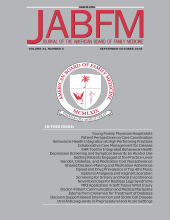Abstract
Introduction: Prescription errors threaten patient safety and pharmacists often contact providers for prescription clarification. This study describes the principal reasons pharmacies call primary care practices to clarify prescriptions and subsequent implications for quality and patient safety improvement.
Methods: A cross-sectional study of 22 primary care practices participating in a patient safety study was performed. Callbacks from pharmacies were logged for 2 weeks to determine reasons for callbacks, most frequently involved drug classes, whether issues were resolved on the same day of the call, and variability of callbacks among practice types. Analyses were performed using frequencies, t tests, and χ2 tests.
Results: Practices recorded 567 clarification calls, most frequently for prior authorization issues (n = 209; 37%), formulary issues (n = 148; 26%), and unclear/missing prescription dosages (n = 117; 21%). Drug classes most frequently requiring clarifications were gastrointestinal (n = 122; 21.7%), cardiovascular (n = 278; 13.9%), and analgesic/anesthetic (n = 74; 13.2%) agents. Issues were resolved on the same day 62% of the time. Residency practices averaged more issues per call (P < .001).
Conclusions: Clarification calls made to primary care practices involve administrative and clinical issues, potentially impacting patient safety. Pharmacy callback data can identify potential prescription concerns, thereby helping practices develop interventions aimed at reducing errors and improving patient safety.







